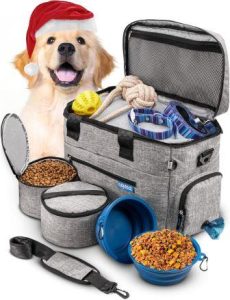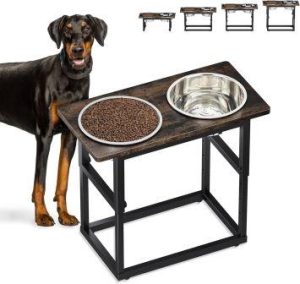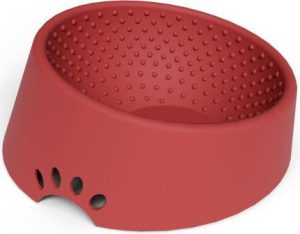This is the summary page.
Here are charts and graphs on what dogs can and cannot eat.
This page will be continually updated with infographics lists charts and detailed summaries on the safe-to-eat and not-so-safe-to-eat foods for dogs.
For now, I will give you a shortened list for quick reference.
There is a downloadable PDF at the bottom of the page.
Can your dog eat the following items?
This list is a quick reference for you to check on when you are about to hand your dog a piece of something to eat and suddenly remember that you have forgotten if they can have it or not.
I am very far from being an expert (I am just a dog lover and blogger) and I suggest that you do more research if you are giving your dogs a lot of any single item.
Yes
Chicken (cooked, boneless, and plain): A good source of protein.
Turkey (cooked, boneless, and plain): Lean meat that can be part of a balanced diet.
Carrots (cooked or raw): High in vitamins and a healthy, crunchy treat.
Blueberries: Packed with antioxidants and safe in moderation.
Apples (without seeds or core): Remove seeds and core due to cyanide content; apples are a good source of fiber.
Plain Popcorn (without salt or butter): A low-calorie, whole grain snack for dogs.
Pumpkin (cooked and plain): High in fiber and can aid in digestion.
Sweet Potatoes (cooked and plain): Rich in vitamins and fiber.
Salmon (cooked and boneless): A great source of omega-3 fatty acids.
Peanut Butter (in moderation, without xylitol): A tasty treat, but make sure it doesn’t contain xylitol, which is toxic to dogs.
Eggs (cooked): A good source of protein.
No
Chocolate: Contains theobromine, which is toxic to dogs.
Grapes and raisins: Can cause kidney failure in dogs.
Onions and garlic: Contains compounds that can be harmful to dogs in large quantities.
Avocado: Contains persin, which can be toxic to dogs.
Caffeine: Can cause restlessness, rapid breathing, and heart palpitations.
Alcohol: Even small amounts can be dangerous for dogs.
Macadamia nuts: Can cause weakness, vomiting, and hyperthermia.
Xylitol (artificial sweetener): Extremely toxic to dogs and can cause rapid insulin release.
Bones (cooked bones can splinter): Can cause choking, intestinal blockages, or splintering.
Fatty foods: Can lead to pancreatitis.
Dairy products in large quantities: Many dogs are lactose intolerant.
Maybe
Strawberries (in moderation): High in fiber and vitamin C.
Cheese (in moderation, if your dog is not lactose intolerant): A good source of protein and calcium.
Watermelon (seedless and in moderation): A hydrating and refreshing treat.
Bananas (in moderation): High in potassium.
Oranges (in moderation, without seeds): Provide vitamin C but should be given in moderation due to acidity.
Peanuts (unsalted and in moderation): A source of protein but high in fat.
Bread (in moderation): Plain, whole-grain bread is safe in small amounts.
Spinach (in moderation): Contains oxalic acid, which can be harmful in large quantities.
Broccoli (in moderation): A source of fiber and vitamins.
Celery (in moderation): Low in calories and a crunchy treat.
Always introduce new foods gradually, and be aware of any potential allergies or sensitivities your dog may have.
Regularly consult with your veterinarian for personalized advice based on your dog’s specific health needs.
I want to apologise for any duplicate answers.
Can a dog eat walnuts?
No, walnuts can be toxic to dogs and should be avoided.
Can a dog eat raw eggs?
It’s not recommended due to the risk of salmonella and biotin deficiency.
Can a dog eat ice cream?
No, ice cream contains lactose and sugar, which can cause digestive issues in dogs.
Can a dog eat olives?
Yes, in moderation, but avoid those with pits or high sodium content.
Can a dog eat turkey?
Yes, plain, cooked turkey is safe, but avoid seasoned or fatty parts.
Can a dog eat bacon?
No, bacon is too fatty and salty, which can lead to pancreatitis.
Can a dog eat brussels sprouts?
Yes, dogs can eat cooked brussels sprouts in moderation.
Can a dog eat marshmallows?
No, marshmallows contain sugar and sometimes xylitol, which is toxic to dogs.
Can a dog eat melon?
Yes, melon is safe in small amounts, but remove seeds and rind.
Can a dog eat eggshells?
Yes, finely crushed eggshells are a good calcium source for dogs.
Can a dog eat oatmeal?
Yes, plain cooked oatmeal is safe and a good source of fiber for dogs.
Can a dog eat papaya?
Yes, papaya is safe, but remove seeds and serve in moderation.
Can a dog eat a hot dog?
No, hot dogs contain preservatives and high sodium, which are bad for dogs.
Can a dog eat ginger?
Yes, ginger is safe for dogs and can even aid digestion in small amounts.
Can a dog eat boiled eggs?
Yes, boiled eggs are safe and nutritious for dogs.
Can a dog eat pizza?
No, pizza contains ingredients like cheese, spices, and onions that aren’t good for dogs.
Can a dog eat scrambled eggs?
Yes, plain scrambled eggs are safe for dogs.
Can a dog eat tuna?
In moderation, yes, but opt for plain tuna without oil or seasoning.
Can a dog eat chicken?
Yes, plain cooked chicken is safe and healthy for dogs.
Can a dog eat eggplant?
Yes, but only in moderation and after cooking to avoid potential allergens.
Can a dog eat green peppers?
Yes, green peppers are safe and provide vitamins for dogs.
Can a dog eat rib bones?
No, rib bones can splinter and cause choking or digestive issues.
Can a dog eat sausage?
No, sausage is too fatty and salty for dogs.
Can a dog eat vegetables?
Yes, many vegetables are safe and healthy for dogs.
Can a dog eat watermelon rind?
No, watermelon rind can be difficult to digest and may cause gastrointestinal issues.
Can a dog eat grass?
Yes, dogs can eat grass, but excessive eating may indicate digestive problems.
Can a dog eat orange peel?
No, orange peel can be hard to digest and may cause stomach upset.
Can a dog eat white chocolate?
No, white chocolate contains theobromine, which is toxic to dogs.
Can a dog eat cooked eggs?
Yes, cooked eggs are a good source of protein for dogs.
Can a dog eat steak?
Yes, plain cooked steak is safe for dogs, but avoid seasoning.
Can a dog eat bones from pork?
No, pork bones can splinter and cause harm to dogs.
Can a dog eat lamb bones?
No, lamb bones can splinter and pose a choking hazard.
Can a dog eat noodles?
Yes, plain noodles are safe but offer little nutritional value.
Can a dog eat egg yolk?
Yes, egg yolk is safe and full of nutrients for dogs in moderation.
Can a dog eat licorice?
No, licorice can be harmful and toxic to dogs.
Can a dog eat ice cubes?
Yes, ice cubes are safe and can help cool down a dog.
Can a dog eat tums?
Yes, in small doses, but consult a vet for specific health issues.
Can a dog eat bones from beef?
No, beef bones can splinter and cause digestive blockages.
Can a dog eat bones from steak?
No, steak bones can splinter and pose a choking hazard.
Can a dog eat fried eggs?
Yes, but limit fried eggs due to the added fat and oils.
Can a dog eat fish bones?
No, fish bones are small and can cause choking or internal damage.
Can a dog eat honey nut cheerios?
Yes, in moderation, but avoid too much sugar.
Can a dog eat tuna in water?
Yes, tuna in water is safe occasionally, but not regularly.
Can a dog eat raisins?
No, raisins are highly toxic to dogs and can cause kidney failure.









